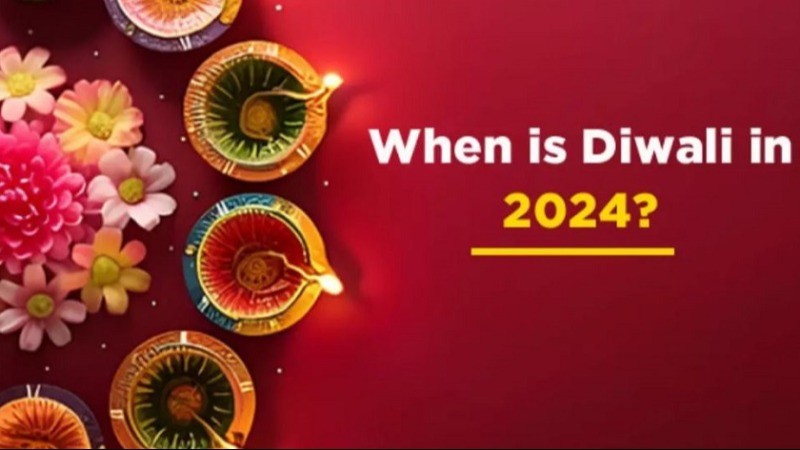
Diwali, also known as Deepawali, is one of the most important festivals celebrated in India. This festival symbolizes the triumph of light over darkness, knowledge over ignorance, and good over evil. Diwali brings people together in a joyful celebration filled with spiritual rituals, family gatherings, and vibrant festivities.
Rooted in ancient traditions, the word ‘Deepawali’ means "a row of lights," and homes are illuminated with oil lamps to welcome happiness and prosperity. The festival marks the return of Lord Rama to Ayodhya after defeating Ravana, symbolizing the victory of good over evil. It is also associated with Goddess Lakshmi, the goddess of wealth, and Lord Ganesha. Praying to these deities is believed to bring good fortune and prosperity for the coming year.
Diwali 2024: When is It Celebrated?
Diwali is a five-day celebration, beginning with Dhanteras and ending with Bhai Dooj. However, the dates can vary by region. For instance, in Maharashtra, Diwali starts a day earlier with Govatsa Dwadashi, while in Gujarat, the festivities begin even earlier with Agyaras and end with Labh Panchami.
In 2024, Diwali will be celebrated on Thursday, November 1st, and the five-day festivities will kick off on October 28th with Dhanteras and conclude on November 2nd with Bhai Dooj.
Key Dates for Diwali 2024:
Dhanteras (October 29, 2024): The festival starts with Dhanteras, a day dedicated to Lord Dhanvantari, the god of health and healing. It is customary to buy gold, silver, and new utensils to bring prosperity and good luck.
Choti Diwali (October 31, 2024): The second day celebrates Lord Krishna's victory over the demon Narakasura. Homes are cleaned, decorated, and lit with earthen lamps to chase away darkness and welcome positivity. Firecrackers are often burst on this day.
Deepawali (November 1, 2024): The main day of Diwali is dedicated to the worship of Goddess Lakshmi. Families perform Lakshmi Puja in the evening, lighting up their homes with diyas and decorative lights. It is a time for sharing sweets, gifts, and joy with loved ones.
Govardhan Puja (November 2, 2024): On the fourth day, devotees honor Lord Krishna by performing Govardhan Puja, symbolizing the Annakut ritual. Various dishes are prepared as offerings to the deity.
Bhai Dooj (November 3, 2024): The final day of Diwali is Bhai Dooj, which celebrates the bond between brothers and sisters. Sisters pray for their brothers' long lives, and brothers promise to protect them in return. The exchange of gifts and sweets marks this day of love and care between siblings.
How is Diwali Celebrated?
Diwali is known for its grand celebrations across India and in Indian communities around the world. Here are some of the ways people celebrate the Festival of Lights:
Lighting Diyas and Creating Rangoli: Lighting oil lamps (diyas) is a central aspect of Diwali, symbolizing the victory of light over darkness. Homes are beautifully decorated with rangoli patterns made from colored powders, flowers, and rice to welcome guests and deities.
Firecrackers and Fireworks: Diwali and firecrackers have traditionally gone hand in hand. However, with rising concerns over pollution, many people now opt for eco-friendly alternatives like green crackers.
Exchanging Gifts and Sweets: Diwali is a time for sharing love and gratitude. Families exchange gifts, sweets, and dry fruits as a way of expressing their affection. Popular sweets include laddu, barfi, kaju katli, and gulab jamun.
Worship and Rituals: Diwali is incomplete without the Lakshmi Puja, where families seek the blessings of Goddess Lakshmi for wealth, health, and happiness. Lord Ganesha, the remover of obstacles, is also worshipped for wisdom and success.
Diwali is a time of unity, love, and tradition, and its celebrations bring immense joy to people of all ages.